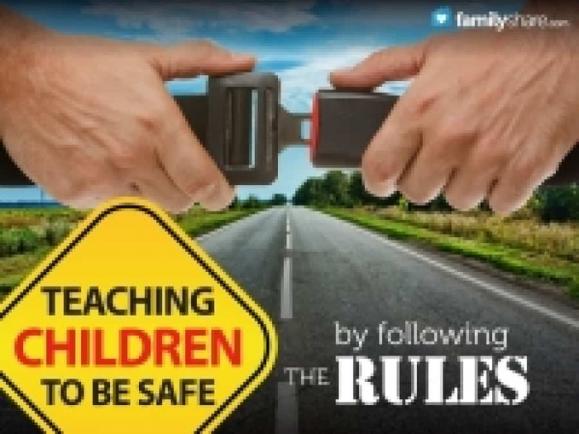
As parents we are constantly trying to keep our kids safe: Look both ways before crossing the street; don't touch a hot stove; be careful with scissors; don't run with sharp objects. We try to teach them the dangers and what can happen. But how much do we focus on spiritual safety? Physical safety is important, but spiritual safety is, too - maybe even more important.
Recently, Thomas S. Monson, leader of a world-wide church, explained, "There are rules and laws to help ensure our physical safety. Likewise, the Lord has provided guidelines and commandments to help ensure our spiritual safety so that we might successfully navigate this often-treacherous mortal existence and return eventually to our [God]."
Decide what standards will keep your children safe from spiritual pitfalls
Whether lying, cheating, stealing, swearing or sexual transgression, talk with your spouse about what activities you want your children to steer clear of in their lives. Decide when and how to approach the subject. Prayer may be a good option to help you make these decisions.
Create a learning environment for your children
Just as you carefully taught your kids not to play with matches or stick their fingers in the light socket, you need to carefully explain what not to do and why for the spiritual light sockets and matches. Be willing to answer any and all questions. If you don't have an answer, either study it out together, or tell them you will find out and then get back to them. Make sure you follow through. The ultimate goal is to have open communication with your children so they feel they can discuss important problems and decisions with you.
Your actions speak louder than words
If you think you can get away with "Do as I say, not as I do," you're wrong. Not only is this hypocritical, but your kids follow your example and watch everything you do. Even if they see the negative consequences, they will still likely follow in your footsteps. Model the behavior you expect. This may take extra effort on your part, but you and your family will be better for it.
Rules and commandments are not confining, but actually allow for more freedom
For every action there is a consequence. Some rules that you may choose to not follow can take away your choices. For instance, if a child touches a hot stove, they now have a burn that may or may not heal back to normal. Their burn will hurt. It may restrict some of their activities. Similar restrictions occur when making more serious poor decisions. By making good choices, you can keep all options available.
Obeying the rules brings safety and blessings
Rules are not meant to be punishments, but guidelines to keep us out of harm's way. Monson also declared, "A knowledge of truth and the answers to our greatest questions come to us as we are obedient to the commandments of God. We learn obedience throughout our lives. Beginning when we are very young, those responsible for our care set forth guidelines and rules to ensure our safety. Life would be simpler for all of us if we would obey such rules completely. Many of us, however, learn through experience the wisdom of being obedient." By following commandments, we are blessed - just as we often reward our children for being obedient.
We must remember that we are not only responsible for our children's physical well-being, but also their spiritual safety. We need to teach them correct principles and help them to understand that happiness comes from obeying the rules and the commandments. Obedience keeps us safe.

